I'm looking at my schedule for next semester and smack dab in the center of it is this:
RDTP 115B, Caring for the patient at the end of life. 1 credit
The universe is not without a sense of irony.
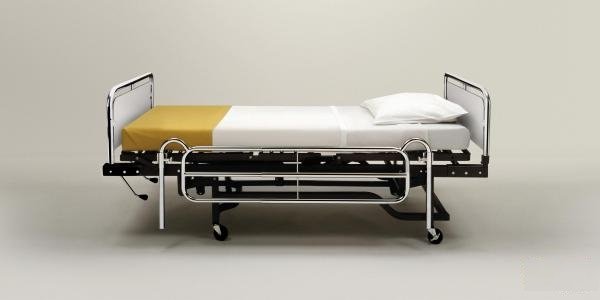
Sometime near the middle of the year in 2014 my father was recovering from back surgery. He's had several at this point, fusing vertebrae and clearing out invasive calcification of the nerve channels which causes a great deal of pain if not removed. There's a 7 inch scar running up the small of his back, testament to the first time this happened. Maybe I'll talk about that first surgery some time in the future, about trying to change the channels on a hospital tv while my father bit at my arms in a feverish delirium. For now though, this surgery is what matters. Because it was at a check up after this surgery that they first noticed my father's white cell count was low.
A low white count, Leukopenia, can mean many things. Infections, deficiencies in certain minerals, sepsis, and a variety of other unpleasant conditions can cause leukopenia, so the doctors were suitably worried. But my father wasn't. He looked up the standard numbers online and told me that his cell count was only slightly below normal. He had been being jerked this way and that by doctors for a long time, told to rush in for a test and then that they would call him back with the result in a month. He felt like many feel when put up against the confusing, expensive and often disorganized colossus of the medical system: he was tired of it all. Compared to dealing with another series of doctors and fights with insurance providers a small drop in white count seemed inconsequential. I was visiting him at the time, on spring break from my pre-med classes, and told him that annoying or not, he should probably still have it checked out. By the time I left, he still hadn't gone to the doctor's.
It was a month or two later when he called me to say he had cancer. Apparently he had finally broken down and gone to the doctors and they had very quickly found cancer in his pancreas. It was bad news, even as cancer goes, because pancreatic is one of the worst. Even if caught early, it only has a 16% survival rate at the 5 year point. And before we go on, I think that's something I need to impress upon you.
Cancer isn't clean.
When people think of disease and fighting disease, they think in terms of cured or not. When you have a cold, you have it, and when it goes away its gone for good. The cold is clean, with nice hard lines of delineation between being there and being cured. Cancer isn't like that. Cancer goes into remission, it SEEMS to be gone, which means that we can't see any. But even after they give you that handshake and say you're cancer free, there's still a chance it can come surging back and kill you. This is why cancer survival isn't two neat columns, with dead men in one and smiling survivors in the other. Cancer is a timeline of probabilities, numbers saying what your chance of living till a particular point in the future is.
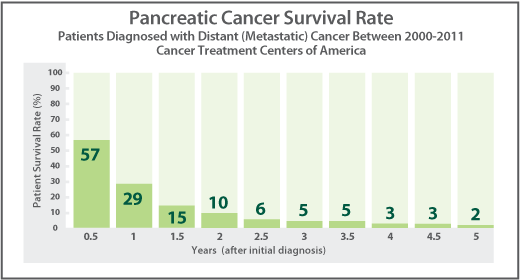
This is an overall graph, including people who caught it both early and late. If caught early it pushes the numbers up a bit. Catching it early is rare though.
You have an 29% chance of living a year, but only a 2% chance of living 5. This is what cancer is. And pancreatic has a 16% chance at that 5 year point, and that's if you catch it immediately. Which, luckily, they did for my father.
Me and my father live in two different states so I only see him every 6 months or so. Because of this, I heard about most of what happened in that timespan either from him or second hand. First they found the pancreatic cancer, then the thyroid cancer, then the Non-Hodgkin's and finally the Hodgkin's lymphomas. Four different cancers, all at once. He told me, angrily, about a doctor he had, a doctor that completely ignored his other cancers in favor of focusing on the thyroid one. My father kept asking the doctor about what they were gonna do with his other cancers and the doctor responded with "Yeah, I bet having 4 at once kind of sucks huh?" That was a lot of what we talked about during those months, he would call and complain to me about all the crap he had to put up with.
I was used to it at this point. The back surgeries had resulted in similar things, not to mention they resulted in him becoming addicted to pain killers. Things a cycle with my father: highs and lows, 3 days without sleep while tripping out on Oxy, then crashing for a day and waking up in pain and depressed. My sister hid his pills once and he threatened to call the police on her, accused her of taking them for herself, and nearly kicked her out of the house. I've found him sitting nearly naked on the kitchen floor, howling and humming to himself while clapping his hands and slapping his shoulders and knees, like he was about to launch off into a song but was eternally stuck in that preamble. He just to complain to me about how he was in pain but that the doctors wouldn't give him any more medication because he used it up too fast. He doesn't complain about that anymore, since the cancer they give him as much as he wants. That alone is frightening, both on its own and because of what it implies. The phrase "Make them comfortable" rings eerily in my head.
In any case, after a few months they decided that he would have to undergo the Whipple procedure. The Whipple procedure is a surgical procedure that removes a large chunk of your upper gastric system; its used to prevent the spread of pancreatic cancer. Here's a before and after.
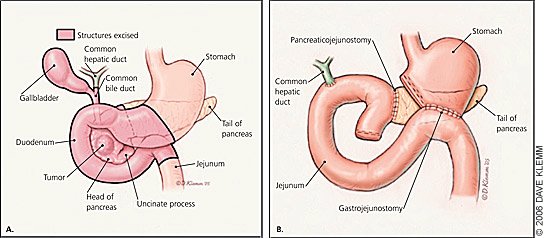
As you can see, you lose most of your pancreas, half of your stomach, the entire duodenum and gallbladder, as well as parts of the common bile duct. These are all things that are extremely important in digestion; lots of very important enzymes come from the pancreas and are activated in the duodenum. Things for the break down of fats and proteins as well as the neutralization of stomach acids. The long term survival rate for people who have had the Whipple procedure isn't great, it's around 20% if memory serves. But this surgery was good news because it meant that the cancer hadn't spread to any of the other nearby organs, it could be stopped here.
I was in town just after he got it done, and I went to see him a lot, or at least what felt like a lot. He had two little plastic bottles with tubes attached to his side, into which blood and pus and all manner of fluid would flow and collect. They changed them every day and it struck me how mechanical it all was; like changing the oil in a car.

This isn't him, but it is someone recovering from the same surgery, and bearing the same tubes. I have no pictures of him in the hospital. He didn't want to take any, and neither did I.
He was angry in the hospital, and I can understand it. He told nurses to do things and they ignored him. He told them that things they were doing weren't gonna work and then when it didn't work, they refused to accept that he had known better than them. My father is an electrical engineer but he has knowledge on just about everything and the first thing he did when he got diagnosed was to read. He read up on everything involved to the point that he could second guess doctors and often be correct. He was laying helpless in a bed, hungry and in pain, dealing with doctors and nurses who he knew better than but still not being heard. I've been on the other side, working with nurses so I know how it goes. If a patient isn't bleeding out, you get to him when you're ready. That 12 hour shift would be impossible if you were sprinting from room to room answering every call immediately. My father was a victim of triage and a man who knew too much to relax. It was a nightmare for him.
They left the tubes and bottles in him when he finally got released and one of them was loose. He picked and pulled at it constantly, like a dog chewing on its stitches. He isn't good at leaving something alone if he thinks he can fix it. And he always thinks he can fix it. I don't have many specific memories of those days; lots of vague memories of driving him to doctors visits, checking to make sure the tubes weren't infected, watching him stagger about on pain killers, worried he was gonna do something stupid and tear one of those tubes straight out. There was one scary trip the the hospital due to abdominal pain, but it turned out to be a fairly simple obstruction. I suppose such things are common when your guts get rearranged to the point that his did. He got the tubes removed and the holes sewn shut shortly before I left, so that was a load of my mind at least. I went back to studying anatomy and physiology, trying my best to get into a medical program that only accepts 10 people a year, and didn't see him in person for another 6 months.
The next time I saw him was my sister's graduation. I came in from out of state the day before and stayed in my sister's dorm room, sleeping on the floor. Cheaper than a hotel room and it let me spend some time with her. I saw my mother and grandmother a bit during the ceremony itself, but I only saw my dad for a few minutes afterwards. My mother and father are divorced and not on great terms, so the entire family only got together for a few minutes in a parking lot. I had to get on the road right away after the ceremony, so we all gathered where I had parked and said hello and goodbye. My father had been going through chemo for a long while now and had lost close to 100 lbs. He had cut his hair shorter, it used to be long and in a pony tail, and his face had become much skinnier. He was hard to recognize and he seemed very small, shivering in the cold of the northern arizona mountains. Despite the weight loss and the change of appearance, he still seemed like the same person and in a way that was even stranger. We exchanged greetings but it was all fairly casual. No heart felt reunions, just "Hey, how ya doing, oh I'm fine how are you? Good to hear. I'll see you next Christmas!"
It was the next time that was the hard one. He had gotten into a cycle of manic depression by the time I saw him next. He took pain killers to the point of oblivion and then stayed awake for days, becoming less and less coherent as it went on. Everyone tried to help him, tried to stop him. We told his doctors what he was doing but they didn't stop prescribing the pills. You don't worry about the gas mileage in a car that's speeding towards a cliff. After days like that he would crash out and sleep for 16 hours or more and then wake up and be his normal self again. But he would be depressed, listless and quiet. He'd spend some time like that, maybe a day, maybe a week, and then it would start over. He told me, when I asked him why he didn't go to bed, that he was afraid he might not wake up.
He had me drive him to the doctor during my stay and that was the first time I think I've ever seen him cry. It was while he and the doctor were talking about his condition; he just started to break down. It was strange to see, and so unexpected that I just couldn't do anything. What could I do? I had no good idea of how to help, no practice with this sort of thing. Neither of us are terribly emotive people; our range of motion is generally 90% straight faced, with a smile or a frown on either extreme. I sat and I held his jacket and I didn't say a word as he managed to pull himself together. Neither of us said anything about it on the way back home, and no one has talked about it since.
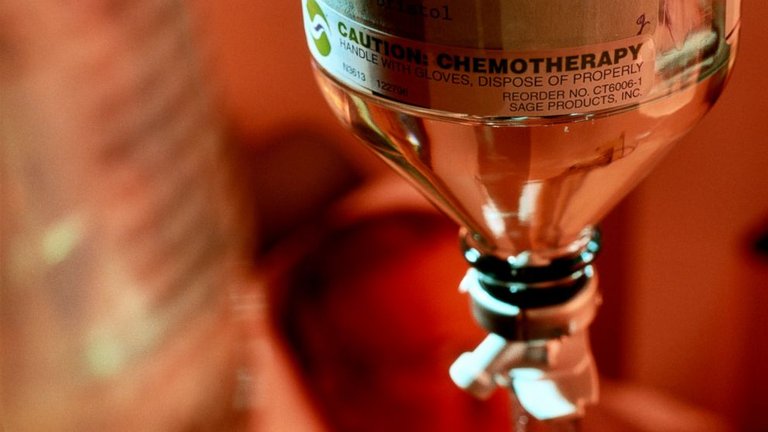
These were the worst times, when he was in the midst of chemo. He told me once that he wondered if he should have done anything to begin with, if he should have ever gone in to get the white cells checked. He said that a year of feeling healthy before suddenly keeling over might be better than 5 years of being sick and then dying. And you probably think "No, that line of thinking is defeatist and stupid. If there is any chance of survival, you should take it". I used to think that to but its different when you're immersed it in for a long time, when you see what happens and you really have to think about it. Is a good, short life better than a long, painful one? Is it worth trying to struggle through life only to die after so much sickness and discomfort? I don't know. But it doesn't seem so black and white anymore, and I wasn't even the one who was sick.
But he pulled through it, somehow. Despite having 4 cancers and spending much of his life zonked out on pain pills and staying up for days, he somehow managed to survive up till now. All the cancers are officially in remission. Right now he's worried more about nutrition than anything. He lost a lot of weight and without the enzymes from his pancreas he has a hard time digesting things. He eats huge amounts of fats and sugars just to stay at his current weight. He's very paranoid about it too; one of his brothers died of stomach cancer and my father had to watch as his brother slowly starved to death over months. It's made him perhaps a little too anxious about gaining weight, trying to avoid that fate. One silver lining as that he's off his blood pressure meds; losing all that weight really helped in that department. You take what good you can, I guess.
And I'd like to tell you that I'm going in to Radiation Therapy in order to help people like my dad. That this entire experience has inspired me to do something. But that would be a lie; I was working towards this program before he got sick. It's a simple case of dramatic irony that I would be studying how to fight cancer when my father gets it. I've got 5 semesters left until I get my degree, just under 2 years. I hope I can finish while my father is still alive. I hope he's one of the 16% that make it out to 5 years and beyond. But I can't shake the feeling that there is some degree of dark symmetry at work here; that I'll be learning about how to take care of dying patients at a time when doing such a thing may become personally important.
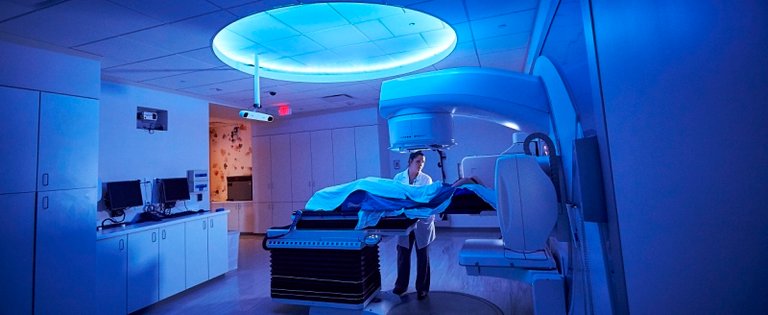
I'm starting on a program to learn how to treat cancer, just as my father recovers from it. It's such an odd thing. I descend into a world of clean antiseptic corridors, hospital rooms and dying men while he ascends out of it. I like to think that maybe my experiences with all this will make me a little bit better at the job I'll eventually have once I complete the program. Maybe I can cope with it better than someone who never had to deal with this stuff before they entered the program. I like to think so. But I'm not entirely sure this story has a message or moral to take away. But I guess there is one silver lining to all this: If his cancer does come back, I'll be ready this time. This time I'll be able to help.
I have no idea why but steemit always breaks my img links by deleting the HTTP: before the link. I have to go back through and edit the HTML to make it work.